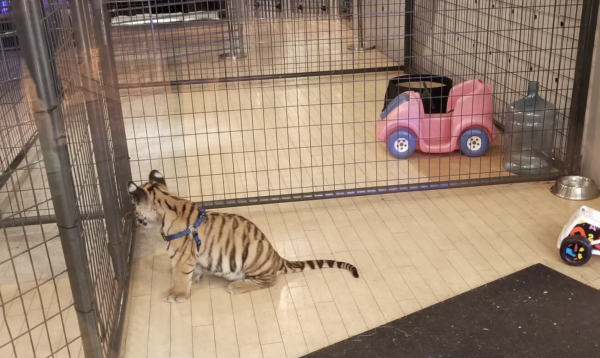Music Review: Julia Holter and FKA Twigs
Composer, keyboardist, and singer Julia Holter has explored a wide range of sounds over her past three albums. Ranging from baroque pop to experimental ambient, her music is hard to pin down to just one sound. Holter’s most recent album, Have You In My Wilderness, strays from the ambient and experimental style heard on Loud City Song and instead emphasizes dream and art pop elements. Although Holter focuses on a more accessible pop sound on Have You In My Wilderness, she still integrates elements of jazz-infused post-rock and even French impressionist classical music, which mesh well with Holter’s singer-songwriter style.
This album invites the listener to a much more personal and intimate experience than does her previous work. Although the lyrics remain vague and esoteric, Holter manages to create a close and personal experience with the listener. The track “Betsy On The Roof” showcases Holter’s ability to powerfully coalesce her emotions and music. The dense yet weightless string melody combined with the lumbering drums creates a sense of grandeur that is very unique to this album.
One tool that Holter uses extremely well to integrate her emotion and music is her ability to really build and intensify tracks over their duration. One of my favorite tracks, “Lucette Stranded on the Island,” starts out as only vocals over clanging percussion and then thickens into an overwhelming beauty and chaos.
While Holter is extremely gifted in her ability to jam-pack emotion into certain tracks, she showcases a brighter, more up-tempo sound on the album as well. The track “Everytime Boots” uses jovial, pop-rock piano chords and puts Holter’s vocals at the forefront of the production, which is very uncommon in her previous work. The track “Sea Calls Me Home” also uses Holter’s vocals as the lead role on the track, but backs them up with a whimsical and evocative harpsichord. Later on, the track erupts into an aggressive saxophone solo that encompasses Holter’s fantastic unpredictability throughout the whole album.
Have You In My Wilderness’s most impressive aspect is its wide variety of sound combined with the seamless cohesiveness of the album. It is commendable to explore a wide variety of styles on an album, but the ability to explore variety while maintaining cohesiveness is what really separates good albums from great albums. Have You In My Wilderness, with its haunting combinations of genres and styles that work off of one another rather than clashing, achieves the status of the latter.
FKA Twigs, or Tahliah Barnett, is an artist in every sense of the word. Ever since her debut, EP1, she has established herself as a visionary in trip-hop and electronica. Although she is relatively new to music, only having released two EPs and one full-length album, Twigs has already established herself as a key player in modern trip-hop and R&B.
Twigs’ music revolves around self-reflection and vulnerability, subjects that have elevated Twigs’ intimacy with the listener. Twigs addressed this vulnerability in an interview with the Guardian in August 2014, stating that “vulnerability is the strongest state to be in.” There is something wholly refreshing about the openness in her most recent work, M3LL155X (Mellissa). Almost every song on the EP revolves around Twigs’s personal struggle with control and submission in sexuality, a topic that most people would typically steer clear of. In an era where art has become increasingly detached from reality, it is a very human experience to hear such blatant honesty.
M3LL155X consists of only 5 songs, starting with the song “Figure 8,” a glitched-out jittery track focused around Twigs’s past and current experiences with dance style vogue. One of my favorite, and one of the most unique, parts of the EP is when Twigs breaks down into a Yolandi Visser-style distorted rap in the middle of the track. “Figure 8” is then followed by the haunting “I’m Your Doll.” This track feels like an ode to themes of vulnerability, submission, and jealousy. The unsettling clockwork percussion combined with Twigs’s integrated high and low vocals create an absolute ghost of a track. “I’m Your Doll” demonstrates one of Twig’s strongest endings on the EP. The track maintains a state of fragility throughout, eventually culminating into a heavy industrial final chorus.
“In Time,” the next track on the EP, is the most widely known. Twigs’s integrates trap flavors into the production, using high speed high-hat and booming bass. This track showcases the exceptional artistic choices Twigs makes throughout the EP. She implements a flattened auto tune in the chorus that creates an aggressive and completely unique voice. The track “Glass and Patron” is one of the most unique songs in Twigs’s whole discography. The track starts out very delicate and astral and then descends into a dark trance. The sped-up, high-pitch vocals in the chorus resemble recent PC music, which isn’t surprising coming from such a modern and in-touch artist.
The final track, “Mothercreep,” is the most lacking on the EP. Although the track still maintains the same high quality production that is showcased on the rest of the EP, I think at times the background vocals seem overdone and too upfront. The repeated “creep mother creep” in the background throughout the song is invasive and takes away from Twigs’s main vocals on the track. Twigs also uses dissonant synth pads that, while far-reaching conceptually, inevitably de-harmonize the track.
Overall, M3LL155X is a brief but very dense EP. Twigs explores vulnerability on a deeper level than she did in her previous work. The production by Boots on four out of the five tracks is phenomenal and deserves more recognition. M3LL155X, an extremely important EP for Twigs, showcases her peak ability as a songwriter and lyricist.


